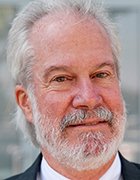
Getty Images
Intel co-founder Gordon Moore dies
Moore was instrumental in the pace of development in the tech industry
Gordon Moore, the co-founder of Intel Corporation, died on 24 March, at the age of 94.
Moore, born in San Francisco, California on 3 January 1929, graduated from Caltech, before joining forces with longtime colleague Robert Noyce to work together under William Shockley, the co-inventor of the transistor and founder of Shockley Semiconductor – the first semiconductor company established in what would become Silicon Valley.
Moore and Noyce participated in the founding of Fairchild Semiconductor, where the pair played central roles in the first commercial production of the diffused silicon transistor. In 1968, they decided to form their own company, Intel, and hired Andy Grove as CEO.
Moore is best known for his law, which has set the cadence for the pace of change in the technology sector. In a video interview discussing the law, Moore described how, for the 35th anniversary edition of Electronic Magazine in 1965, he was asked to predict how integrated circuits would grow. At the time, Moore was director of the research and development laboratories at Fairchild Semiconductor.
“I looked at what we were doing in integrated circuits at that time, and we had made a few circuits and gotten up to 30 circuits on the most complex chips that were out there in the laboratory,” he said. “We were working with about 60, and I looked and said, gee, in fact, from the days of the original planar transistor, which was 1959, we had about doubled every year the amount of components we could put on a chip. So, I took those first few points, up to 60 components on a chip in 1965, and blindly extrapolated for about 10 years, and said, okay, in 1975 we’ll have about 60,000 components on a chip.”
This observation, known as Moore’s Law, has been a driving force in the development of the semiconductor industry. It has also had a profound impact on the development of personal computers and other electronic devices.
Moore received the National Medal of Technology from president George H W Bush in 1990, and the Presidential Medal of Freedom, the nation’s highest civilian honour, from president George W Bush in 2002.
Read more semiconductor news
- Emerging technology research, including in climate science and clean energy, tops Biden’s tech investments in his proposed federal budget for fiscal year 2024.
- Through subsidies and grants, the EU and the UK are focused on building out local chip manufacturing to alleviate semiconductor shortages.
Pat Gelsinger, Intel CEO, said: “Gordon Moore defined the technology industry through his insight and vision. He was instrumental in revealing the power of transistors, and inspired technologists and entrepreneurs across the decades.
“We at Intel remain inspired by Moore’s Law and intend to pursue it until the periodic table is exhausted. Gordon’s vision lives on as our true north, as we use the power of technology to improve the lives of every person on Earth. My career and much of my life took shape within the possibilities fuelled by Gordon’s leadership at the helm of Intel, and I am humbled by the honour and responsibility to carry his legacy forward.”
Moore is survived by his wife, Betty, and their three children.











